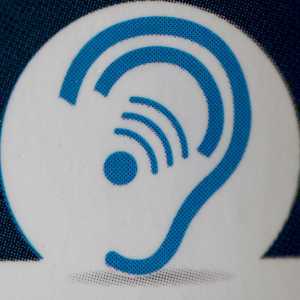30 Jan Majority of Older Adults With Heart Failure Have Hearing Loss
MedicalResearch.com Interview with:
 Madeline Sterling M.D., M.P.H.
Madeline Sterling M.D., M.P.H.
Fellow, Department of Medicine
Weill Cornell Medical College – New York Presbyterian Hospital
MedicalResearch.com: What is the background for this study? What are the main findings?
Response: Heart Failure currently affects 5.8 million people in the United States and is becoming increasingly common as the population ages. Because it has no cure and tends to get progressively worse, physicians recommend that patients control their symptoms by taking multiple medications, maintain a diet low in salt, monitor their weight and blood pressure, and watch for changes in their symptoms.
At the most basic level, in order to understand and follow these instructions, heart failure patients must be able to hear them. Hearing loss, however, had not been studied in heart failure. There are a lot of chronic diseases in which hearing loss is more common than in the general population, including coronary heart disease, hypertension, and diabetes. And many adults with heart failure also have these conditions. So, we thought it would be important to understand if hearing loss was prevalent among adults with heart failure, especially since so much of heart failure management revolves around effective communication between patients and their healthcare providers.
MedicalResearch.com: What should readers take away from your report?
Response: Our findings suggest that the majority of older adults with heart failure have hearing loss, and only 16.3% of those who do, use hearing aids.
MedicalResearch.com: What can physicians do about this?
Response: Doctors, including general internists and cardiologists, should be aware of this issue and make sure they ask their heart failure patients about hearing loss when taking care of them in the hospital and in the outpatient (clinic) setting. This is key, since many people with hearing loss are embarrassed and tend to not to bring it up with their doctor. Doctors can also work on their own communication techniques – like speaking more slowly and discussing care plans with patients in quiet places – to make sure that they are communicating as effectively as possible with adults with heart failure, who may have hearing loss. Finally, if a deficit is suspected, patients should be formally screened for hearing loss, and treated when appropriate.
MedicalResearch.com: What recommendations do you have for future research as a result of this work?
Response: Because this was a cross-sectional, observational study, our results cannot speak to causality or the exact underlying pathophysiology between heart failure and hearing loss. One of our next steps includes doing additional analyses to better understand this association. In addition, we plan to study the effect of hearing loss on health behaviors and outcomes in this patient population.
MedicalResearch.com: Is there anything else you would like to add?
Response: We would like to thank all of the NHANES participants who participated in this study.
Disclosures: Madeline Sterling, MD, MPH, is a general internist and a health services research fellow in the Department of Medicine at Weill Cornell Medicine in New York, NY. Her research focuses on social, cognitive, and sensory determinants of chronic disease management. She is funded by the Agency for Healthcare Research and Quality (Grant number T32HS000066), however the contents of this study do not necessarily represent the official views of the Agency for Healthcare Research and Quality.
You can follow her on Twitter @mad_sters
Citations:
https://jamanetwork.com/journals/jamaotolaryngology/article-abstract/2668608
[wysija_form id=”3″]
The information on MedicalResearch.com is provided for educational purposes only, and is in no way intended to diagnose, cure, or treat any medical or other condition. Always seek the advice of your physician or other qualified health and ask your doctor any questions you may have regarding a medical condition. In addition to all other limitations and disclaimers in this agreement, service provider and its third party providers disclaim any liability or loss in connection with the content provided on this website.
Last Updated on January 30, 2018 by Marie Benz MD FAAD
